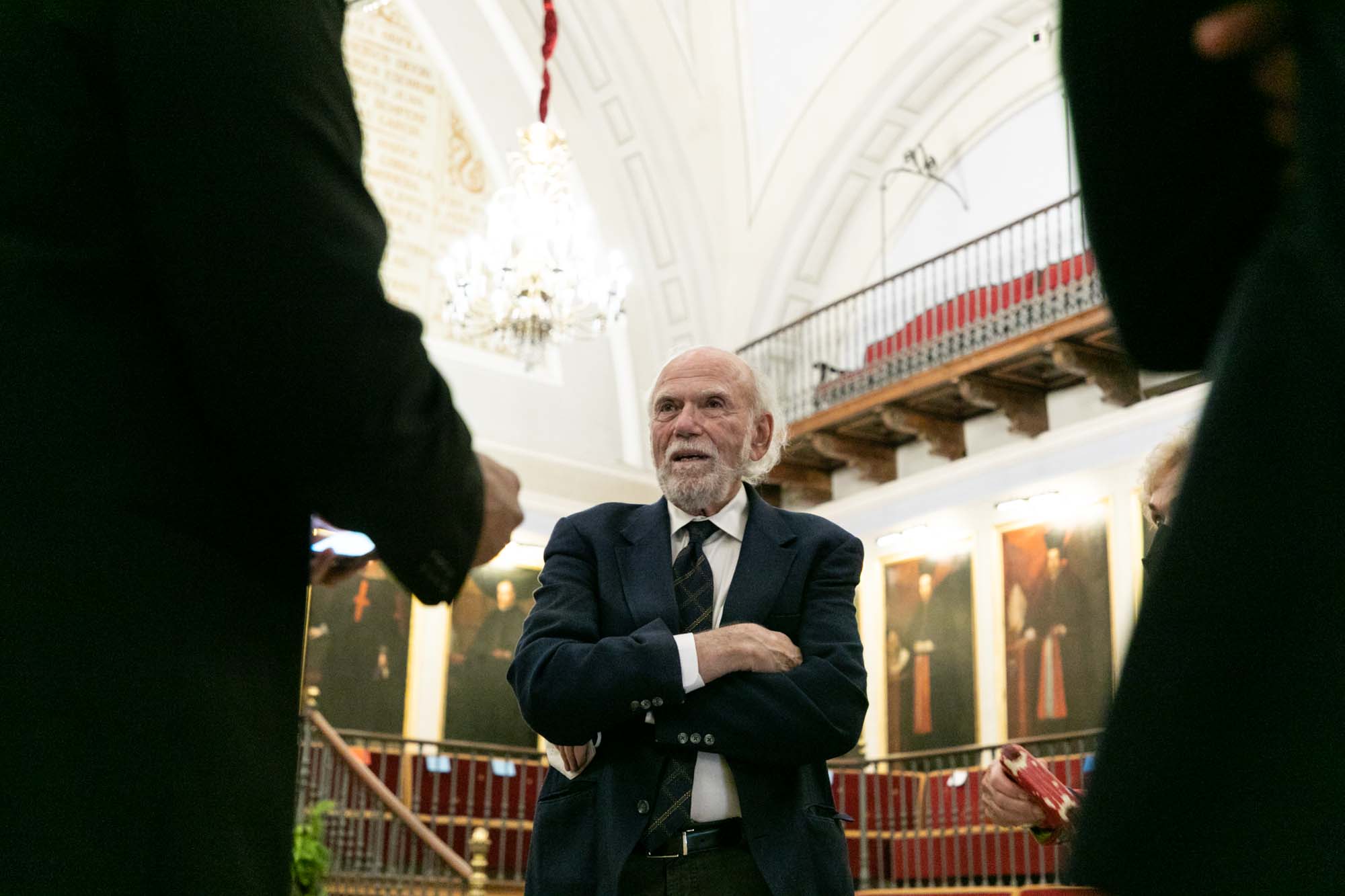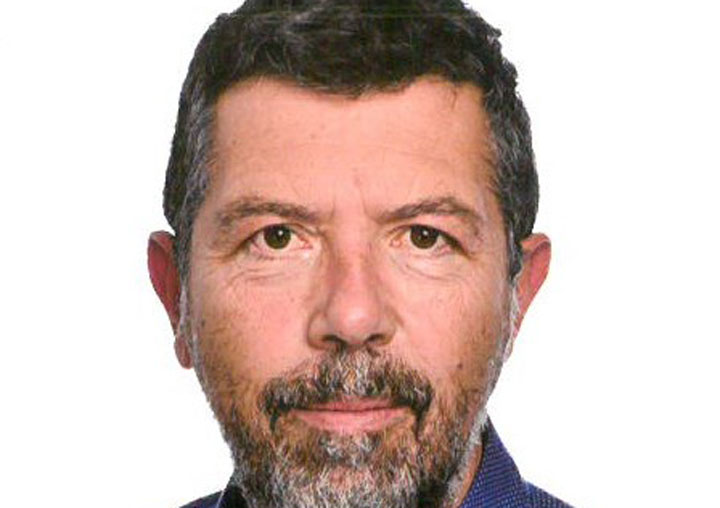Professor Barry Clark Barish is invested as Honorary Doctorate by the Universitat de València
- Office of the Principal
- May 31st, 2022
The Paranymph of the emblematic building of La Nau held the solemn ceremony where professor and researcher Barry Clark Barish was invested as Honorary Doctorate for his extensive study on experimental physics and, in particular, the discovery of gravitational waves, for which he received the Nobel Prize in Physics in 2017.
The Principal of the Universitat de València, Mª Vicenta Mestre, chaired the solemn event, and professor and Institutional Delegate of the Spanish National Research Council in the Valencian Community, Juan Fuster, was the one in charge of reading the laudatio. A large representation of the Board of Directors of the Universitat, a large number of deans of the institution and members and representatives of the various collectives of the university community attended the investiture.
The proposal of recognising professor Barry Clark Barish, graduate and doctorate in Physics by the University of California, Berkeley, as Honorary Doctorate was promoted by the Institute of Corpuscular Physics and supported by the Faculty of Physics of the UV.
Doctor Barry Clark Barish recalled his journey through his home country, the United States, and how it led him to delve into the field of physics. He stated that the Italian physicist Enrico Fermi was his role model and a key figure in his specialization in nuclear and particle physics.
This specialisation enabled him to discover gravitational waves, a key factor in the progress of science and, in particular, the study of particles, which has earned him many recognitions. He finished his speech highlighting the importance of the universality of science and its capacity to transcend frontiers.
The full lectio can be read by clicking here.
For her part, Principal Mª Vicenta Mestre highlighted professor Barish’s contribution to the process of researching science, emphasising his dedication over twenty years to the discovery of gravitational waves and the development of methods for their detection.
Mestre also stressed the importance of the role of science and, in this case, physics. This branch of knowledge is closely linked to the history of the Universitat de València, since, in the 1950s, Joaquín Catalá de Alemany marked a turning point in the research of atomic nuclei and elementary particles. This work entailed the creation of the Institute of Corpuscular Physics of the UV (IFIC), which began to be used as a joint research centre between the Universitat and the Spanish Research Council (CSIC) in 1983, as a result of an agreement with the CSIC.
The Principal’s full speech can be accessed here.
Professor and Institutional Delegate of the Spanish Research Council in the Valencian Community, Juan Fuster, went through Barish’s professional career in his laudatio, emphasising his contribution to science through the development of unprecedented advanced technologies.
Professor Juan Fuster’s laudatio can be read here.
Barry Clark Barish
He was born in Omaha, Nebraska, in 1936. Graduate and Doctor in Physics for the University of California, Berkeley, Dr. Barish was the principal researcher at the Laser Interferometer Gravitational – Wave Observatory from 1994 to 2005, and director of the LIGO Laboratory in Caltech from 1997 to 2006.
Dr. Barish's scientific career has covered several areas of fundamental physics, creating the first intense anti-proton beam at Brookhaven in the 1960s. He built, with Nobel laureates in Physics Friedman, Kendall and Taylor, the first spectrometer for the study of high-energy electron collisions at Stanford and, in the 1970s, he developed an accelerator capable of producing a narrow-band neutrino beam. His research was key in the unification of the electromagnetic and weak nuclear interactions in the theory of Glasho, Weinber and Salam, Nobel laureates in Physics, which forms the basis of today's Standard Model of Particle Physics.
By presidential appointment, he was a member of the National Science Board of the United States from 2003 to 2009, and has served on numerous commissions and committees.
Barry C. Barish is member of the National Academy of Sciences, the American Association for the Advancement of Science and the American Physical Society, of which he was president in 2011.
In addition to the Nobel Prize and the Prince of Asturias Award, Dr. Barish has received many awards and distinctions, including the United States National Academy of Sciences’ Henry Draper Medal, the designation as “Physics Titan”, the Smithsonian Magazine’s American Ingenuity Award, the Enrico Fermi Award, the European Physical Society’s Giuseppe and Vanna Cocconi Prize or the Fundan-Zhongzhi Science Award. He has also received the Honoris Causa from the University of Bologna, the University of Florida, the University of Glasgow, the Southern Methodist University and the Sofia University St. Kliment Ohridski.
File in: Doctors Honoris Causa

















